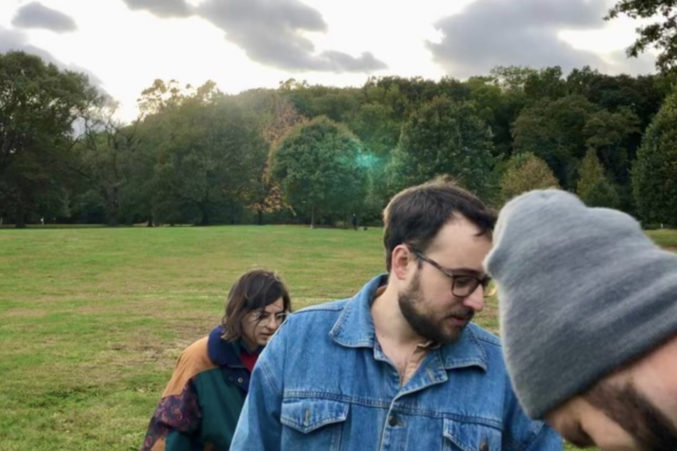It’s been a major year for Dallas-raised, Brooklyn-based playwright Will Arbery thus far. The 30-year-old, who won the prestigious Whiting Award in March, received another major accolade yesterday as his latest work, “Heroes of the Fourth Turning” was named one of three finalists for a Pulitzer Prize for Drama. The award ultimately went to Michael R. Jackson’s musical A Strange Loop, which Arbery described in a Tweet as “one of the most astonishing things ever created for the stage.”
It was Arbery’s own play, however, that left audiences from all sides astonished when it premiered off Broadway last fall. The two-hour drama follows a dense, late-night discussion among a group conservative, Roman Catholic millennials. They talk about God, Planned Parenthood, Donald Trump, and ideological beliefs but it’s not exactly the conversation you’re expecting.
It’s a conversation Arbery has heard many times and in many forms throughout his life. His father is the president of Wyoming Catholic College, and his mother is a professor there. That’s what inspired the play’s fictional institution, though it’s not the only place. Arbery grew up in North Texas, attended Cistercian Prep in Irving, and was sometimes immersed in the conservative bubble that is the neighboring University of Dallas, where some of his seven sisters attended college and where his parents ran a cultural organization.
It also happens to be where I went to school, where my mother has worked for 20 years, and where I saw a million conversations like the one in Heroes of the Fourth Turning unfold.
“From a young age, I was surrounded by these sort of late-night, intense, Catholic intellectual conversations that are depicted in the play,” Arbery said. “So, even though the school in the play is based on the college where my parents teach now in Wyoming, it was very much informed by being a boy in Texas and observing all those conversations, and before that, being a boy in New Hampshire where they taught at Thomas More. It’s a play that’s been inside me for a long time.”
Arbery left that world when it came time for him to enter college; he attended Kenyon College, a small, liberal arts school that is neither Catholic or right-leaning. “It was very much a break from the traditional route in my family,” he says.
Now he lives in Brooklyn, leans liberal, and writes plays partially about “unpacking whiteness.” So, why revisit the bubble he burst out of?
“I was living in New York, and in the year leading up to the election, 2016, and especially once Trump was elected, there was a lot of bewilderment here, and I think just a deep misunderstanding and also desire for understanding amongst the left, to know more about how this could’ve happened. And I think just growing up in this hyper articulate, intellectual, and full-of-conviction world that I came from, I just felt like I had first and foremost a responsibility to show people that it was a lot more complicated,” he says. “The short answer is, I felt like I had access to a world that people didn’t understand. So, I felt I had a responsibility to deepen the narrative about what this country is and who lives inside of it.”
It’s not a Republican play or a Democratic play, though it only shows one side. And if you’re looking for a neatly packaged message to take home, you’ll be left with more questions than answers.
“The play really resists providing an easy take away, but I will say that if there’s one thing the play was striving to do, it was to exist in a place beyond language and in sort of an unknowable space of love–and that love is not always necessarily pretty and that it’s often thorny and hard to integrate, and that it often requires fierce confrontation.”





